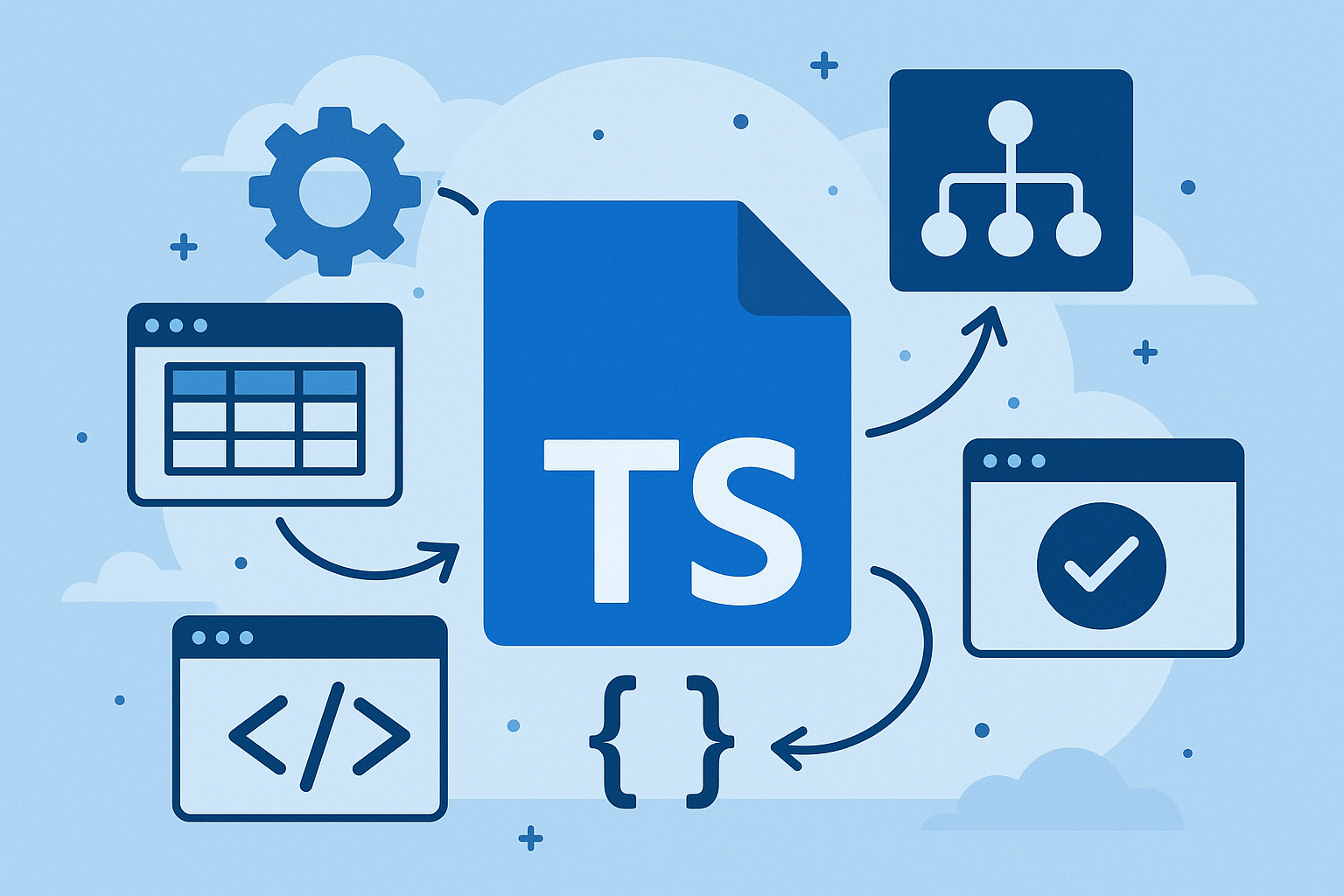
TypeScript has emerged as a game-changer in web development, offering a robust, type-safe superset of JavaScript that empowers developers to build scalable and efficient applications. With its growing adoption in frameworks like React and Angular, TypeScript’s recent updates introduce powerful features that streamline coding and enhance project outcomes. This article explores the latest advancements in TypeScript, provides actionable strategies for developers, and highlights innovations driving its popularity, delivering insights for programmers aiming to elevate their web development skills.
New Features Powering TypeScript’s Evolution
Recent TypeScript updates introduce advanced type narrowing. Features like discriminated unions allow precise type checking in complex logic. This ensures safer and more reliable codebases.
The satisfies operator enables developers to validate expressions against types. It ensures compatibility without altering inferred types. This feature boosts flexibility in coding.
Improved error handling simplifies debugging processes. Enhanced diagnostics provide clearer error messages for type mismatches. This clarity accelerates development workflows.
Support for ECMAScript modules enhances interoperability. Developers can now use import and export syntax seamlessly. This integration streamlines modern JavaScript projects.
Type-only imports and exports optimize bundle sizes. These features reduce runtime overhead, improving performance. They make TypeScript ideal for large-scale applications.
Beginner Strategies: Getting Started with TypeScript
Starting with TypeScript begins with setting up a simple project. Use tools like tsc to compile TypeScript files into JavaScript. This setup ensures a smooth entry for newcomers.
Define basic types for variables and functions. Explicit typing, like string or number, prevents common errors. This practice builds a strong foundation for coding. Leverage Visual Studio Code for TypeScript support. Its IntelliSense provides real-time type suggestions, easing the learning curve. This tool enhances coding efficiency.
Explore TypeScript’s documentation for quick insights. Official guides offer practical examples for beginners. They make mastering types and interfaces accessible.
Start with small scripts to understand type inference. Simple projects help grasp TypeScript’s benefits without complexity. This approach fosters confidence in development.
Intermediate Techniques: Enhancing Development Skills
Intermediate developers can leverage interfaces for reusable code. Define structured data models to ensure consistency across components. This practice improves project scalability. Use union types to handle multiple data scenarios. Combining types like string | number supports flexible function inputs. This versatility streamlines complex logic.
Implement generics to create reusable functions. Generics allow type-safe components that adapt to various data types. This technique enhances code modularity. Integrate TypeScript with frameworks like React. Use props and state typing to prevent runtime errors. This approach ensures robust front-end applications.
Explore configuration options in tsconfig.json. Custom settings, like strict mode, enforce disciplined coding. This setup optimizes development for larger projects.
Advanced Strategies: Mastering TypeScript Development
Advanced developers can harness conditional types for dynamic logic. These types adapt based on input, enabling complex workflows. This strategy supports sophisticated applications.
Utilize mapped types to transform object structures. Features like Partial or Readonly create flexible data models. This approach enhances code maintainability. Integrate TypeScript with Node.js for backend development. Type-safe APIs reduce errors in server-side logic. This practice ensures reliable, scalable systems.
Leverage declaration merging for modular codebases. Combining interfaces across files supports large-scale projects. This technique streamlines team collaboration. Contribute to open-source TypeScript projects. Engaging with libraries like DefinitelyTyped sharpens expertise. This involvement drives professional growth.
Innovations and Community in TypeScript Development
TypeScript’s community thrives on platforms like GitHub. Developers share libraries and plugins, enhancing functionality. This collaboration fuels the language’s growth.
Gamified learning platforms, like https://www.minesgambling.games/game/mi-mines/, inspire interactive coding challenges. These tools reward problem-solving, making learning engaging. They bridge gaming and programming communities.
Improved IDE support enhances development efficiency. Tools like VS Code offer advanced refactoring and debugging features. This integration streamlines coding workflows. TypeScript’s integration with modern frameworks drives adoption. Libraries like React support TypeScript for type-safe components. This synergy powers cutting-edge web applications.
Open-source contributions expand TypeScript’s ecosystem. Community-driven updates introduce new features regularly. This collaboration ensures TypeScript remains a leading tool.
The Future of TypeScript: Bright Horizons
TypeScript’s future shines with ongoing feature enhancements. Upcoming releases will improve type inference and performance. These advancements will streamline development processes. Integration with WebAssembly will boost runtime efficiency. TypeScript will compile to WebAssembly, enabling faster applications. This innovation will expand its use cases. AI-driven tools will enhance TypeScript development. Predictive coding assistants will suggest type-safe solutions. This technology will accelerate project timelines.
Community-driven plugins will enrich TypeScript’s ecosystem. Developers will create tools for specialized frameworks. This growth will support diverse development needs.
Sustainable coding practices will shape TypeScript’s future. Efficient compilation reduces energy consumption in builds. This focus ensures long-term viability for developers.
| TypeScript Sector | Market Share (%) | Examples of Innovation |
| Language Features | 40% | Type narrowing, satisfies |
| Developer Tools | 25% | IDE support, diagnostics |
| Framework Integration | 20% | React, Angular compatibility |
| Future Innovations | 15% | WebAssembly, AI assistants |
Frequently Asked Questions (FAQ)
What makes TypeScript valuable for web development?
Advanced type checking and modern features ensure reliable, scalable code.
How can beginners start with TypeScript?
Set up simple projects, use basic types, and leverage IDE tools.
What strategies help advanced TypeScript developers?
Use conditional types, generics, and contribute to open-source projects.
What’s the future of TypeScript?
WebAssembly, AI tools, and community plugins will drive its growth.
